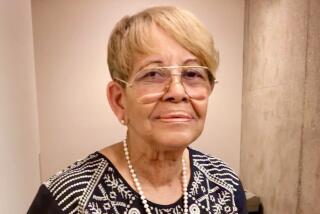USC gives honorary degrees to Japanese American students who had education cut short amid WWII
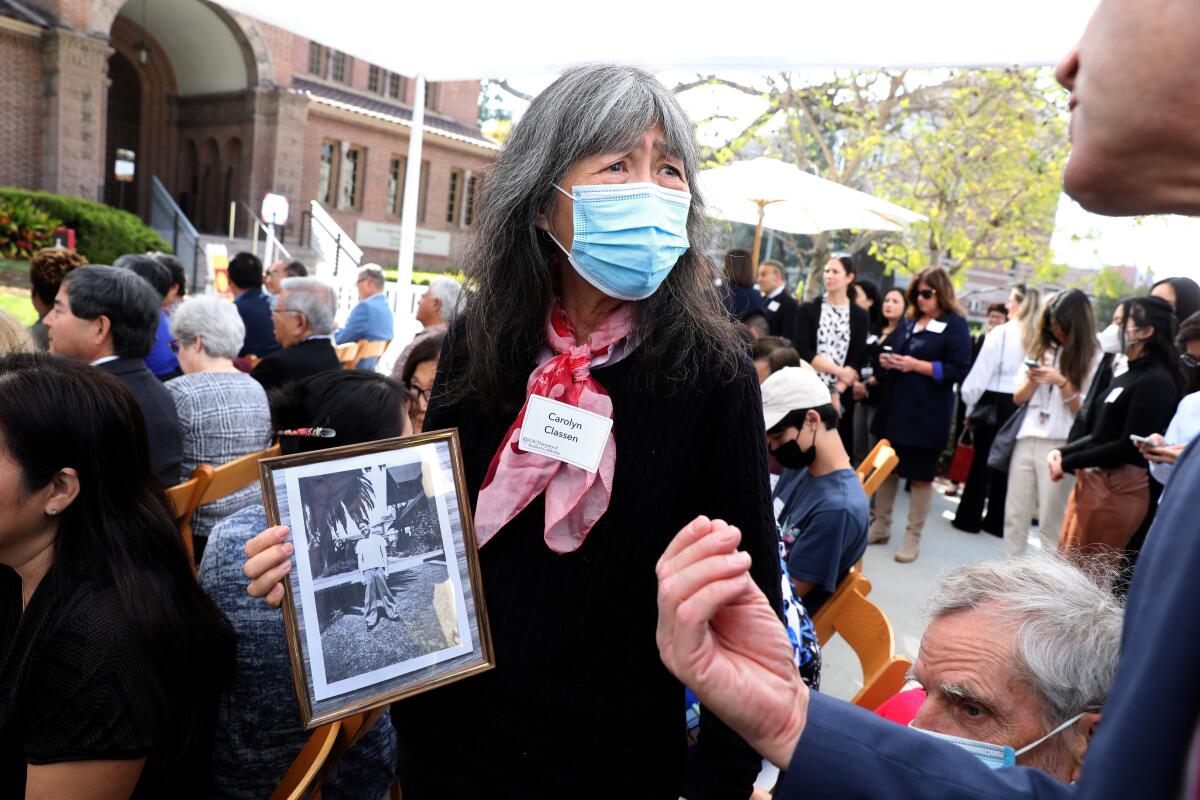
- Share via
Carolyn Classen clutched a gold-framed black-and-white photo of her late father, Francis Sueo Sugiyama, as she wiped tears from her eyes.
The then-young Sugiyama stands smiling under sunny skies wearing a white T-shirt and wide-legged pants with palm trees behind him. Classen believes the photo was taken while he was a dental student at USC in the early 1940s.
For the record:
8:59 p.m. April 2, 2022A previous version of this article misspelled the last name of Francis Sueo Sugiyama as Sugiyana. Also, Henry Kondo’s great-niece Kristen Hayashi was misidentified as his granddaughter.
But Sugiyama, who was the youngest of eight children and among the first in his family to go to college, never got a chance to graduate.
Under an executive order signed by President Franklin Roosevelt in 1942, more than 120,000 people of Japanese descent — two-thirds of them U.S. citizens — were evicted from their West Coast homes and incarcerated at camps in California, Arizona, Idaho and elsewhere during World War II.
Before they would have been forcibly removed, several thousand Japanese Americans like Sugiyama voluntarily relocated to the interior of the country. Sugiyama fled to Chicago; he later resettled back home in Hawaii, where he died in 1996 at the age of 81.

Most students were unable to re-enroll at USC after their incarceration ended, nor were they able to get their transcripts from the university to transfer their credits elsewhere.
Classen said her father was among those who lost his credits. He eventually earned a degree in dentistry from the University of Maryland.
“His dreams were almost dashed because of what USC did to him,” she said. “Our family ... hated USC for decades.”
But her father “persevered and became a dentist, a good dentist,” Classen said. “There was closure for him.”
Eighty years later, USC sought to make amends. At the Asian Pacific Alumni Assn. gala held at the Langham Huntington hotel on Friday, President Carol Folt awarded honorary degrees posthumously to 33 Japanese American students who saw their USC educations derailed during the war.
Multiple generations of family members lined up to accept diplomas on behalf of ancestors who had passed away before receiving recognition of the injustice done to them.
Classen carried with her on stage photos of her father, Sugiyama, including the one of the smiling college-age student and another taken of him shortly before his death.
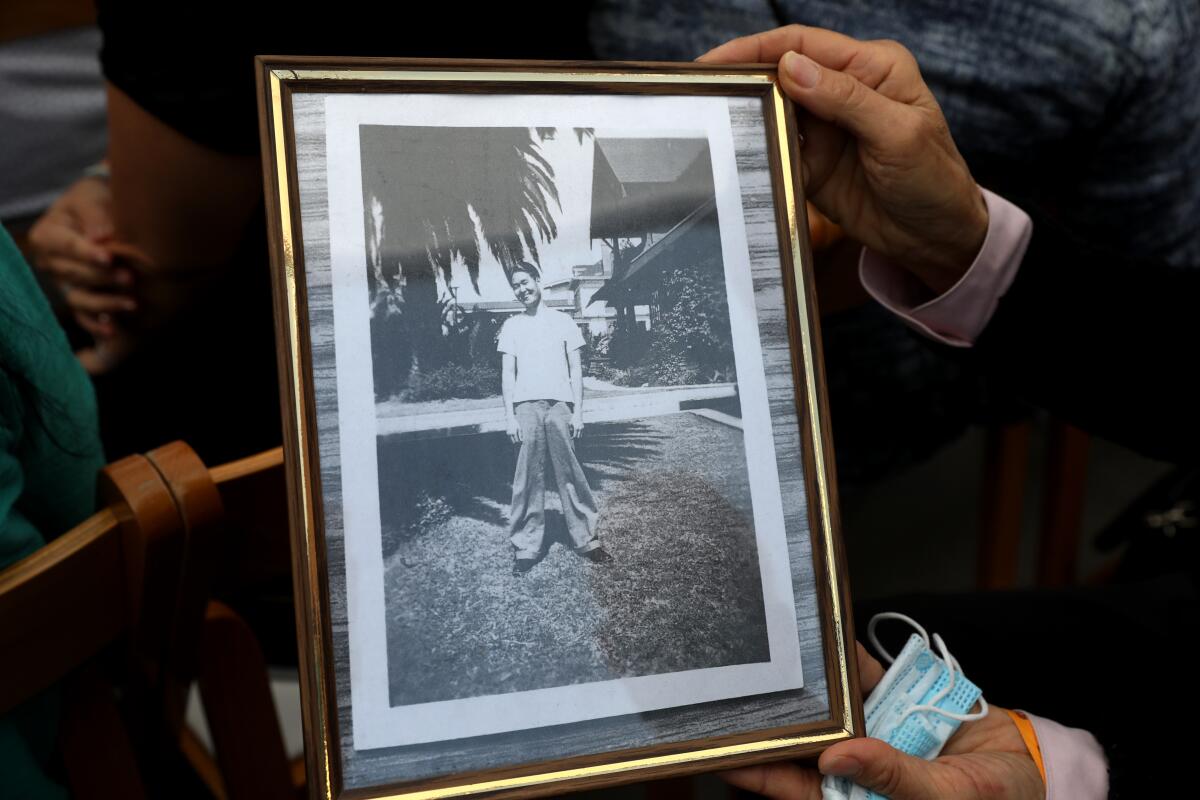
The occasion came 15 years after Japanese American alumni demanded that their alma mater atone for its past behavior.
In 2012, USC announced it would award honorary degrees to the Japanese American students who were unable to finish their studies — but only those who were still living, due to a university policy against posthumous degrees.
But Folt pledged in October that she would make an exception to the rule.
Friday’s award ceremony “represents the end of the quest for justice and reconciliation,” said Jonathan Kaji, who first began pushing for action in 2007 as president of the Asian Pacific Alumni Assn.
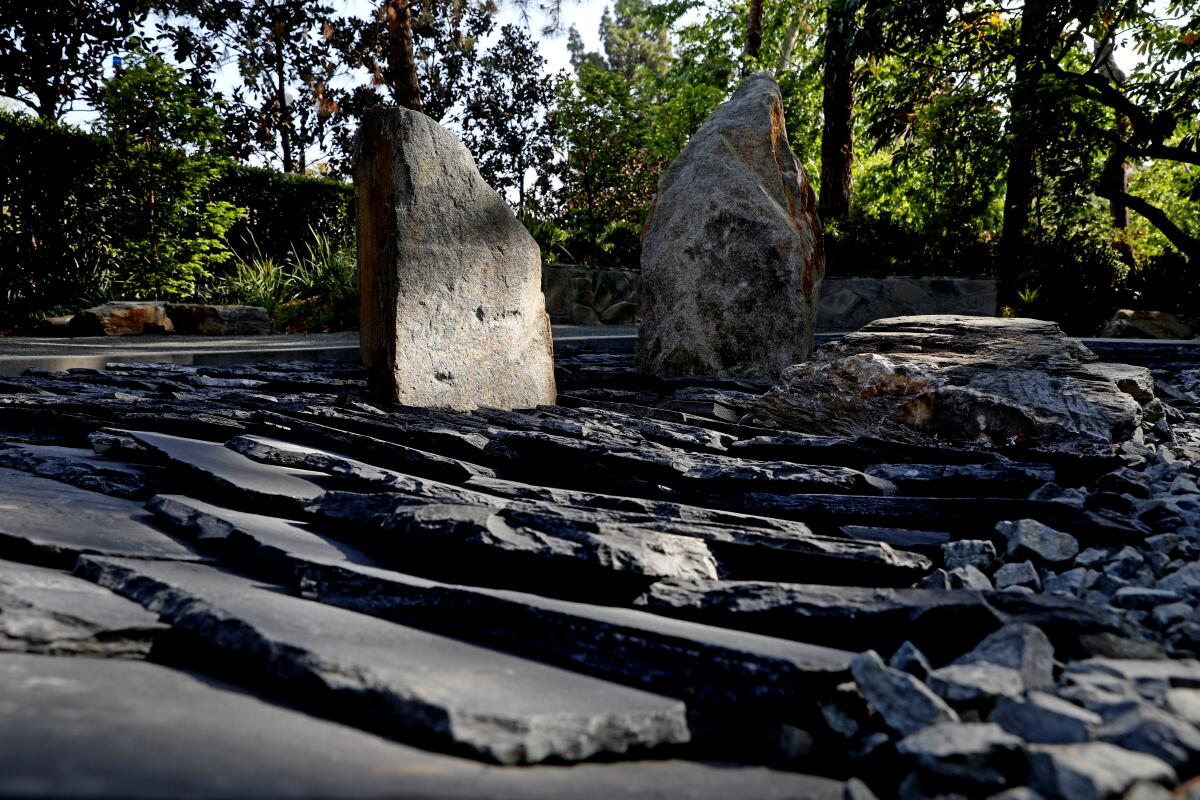
USC officials also dedicated a rock garden at the northeastern corner of campus Friday morning to honor the university’s Nisei students, the American-born descendants of Japanese immigrants.
A Japanese proverb is inscribed on a stone near the entrance: “Three years on a stone.” It’s a message of patience, meaning that sitting on a cold stone will eventually make it warm.
“Obviously the emotions are mixed from the standpoint, you know, sooner would have been better, but later is better than never,” said Kent Ochiai, the son of Tadashi “Tad” Ochiai, who attended two years of dental school at USC before being sent to a wartime camp in Poston, Ariz.
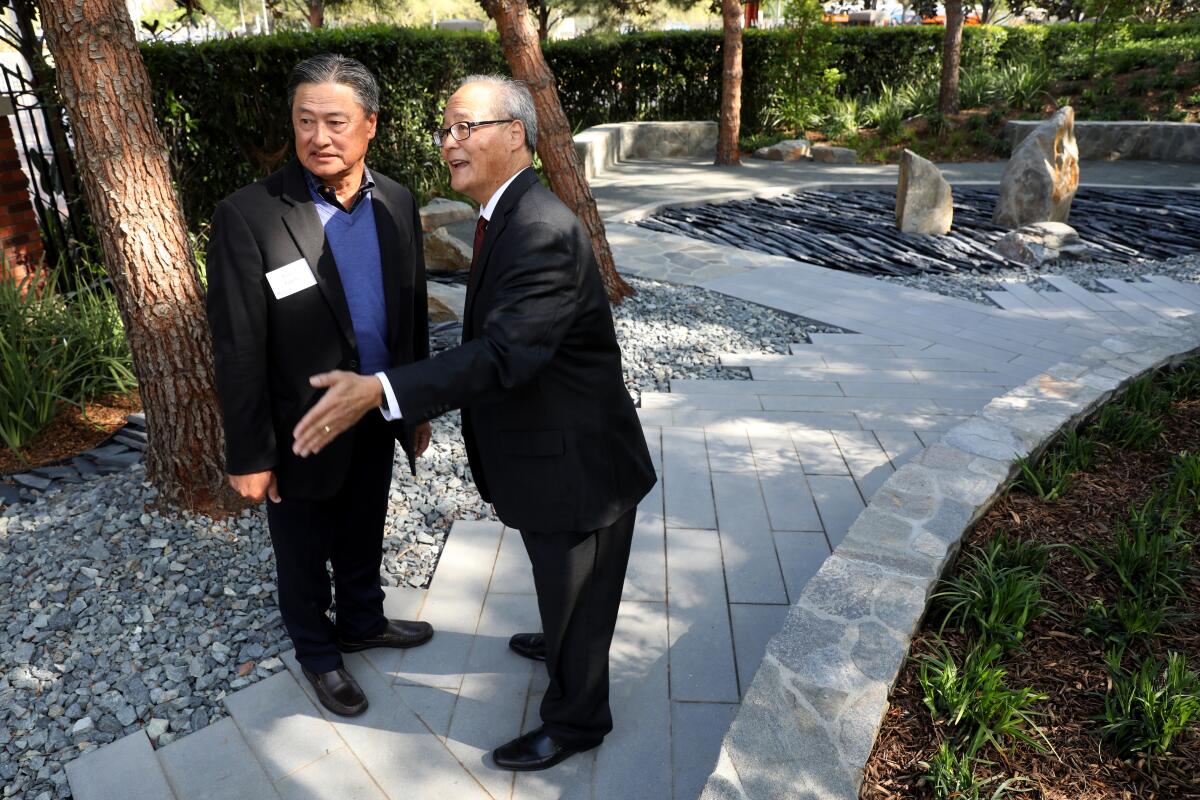
Even at the camp, Tad Ochiai put his education to use — he had a teaching credential from Stanford — and taught high school chemistry. He eventually completed four years of dental school at St. Louis University after being released and opened his own practice in Orange County.
“It wasn’t a matter of what you didn’t have, but what could you do,” his son said. “He did the most of what he could do during that time … he never complained about things.”
The elder Ochiai died in 2012 at age 97.
Despite having never finished his education at USC, Tad Ochiai ran a die-hard Trojan household, his son said.
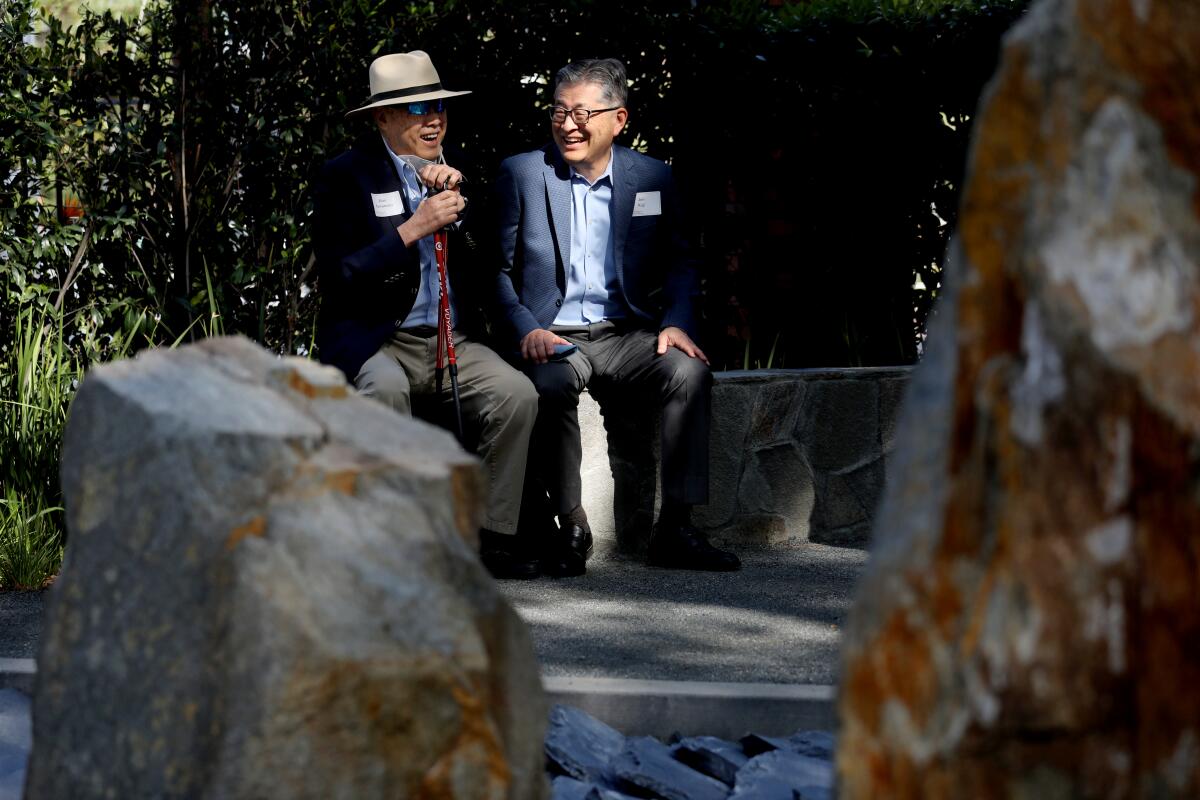
“Basically, I learned football by watching USC football, so I grew up with USC football in my head,” Kent Ochiai said. “It was natural. … I applied to all the different schools, we both did, and we both ended up at USC for our undergraduate education.”
Both Kent Ochiai and his sister, Ruth Kawakami, attended dental school at USC, and Kawakami’s oldest daughter, Niki Kawakami, will be graduating with her dental degree in May.
USC senior Kunihiko Seki was months away from graduating with a degree in international relations when his life was upended by the hysteria and racism that followed the outbreak of World War II.
Seki was the editor of the yearbook and had completed the necessary coursework for graduation. He worked three jobs to pay his way through school and aspired to become a lawyer or a judge, his daughter Kathleen Sakamoto said.
But he was removed from USC and incarcerated at Tule Lake, a high-security camp, because he was a “no-no” — a term for those who answered “no” or refused to answer two clumsily worded questions on a loyalty questionnaire.
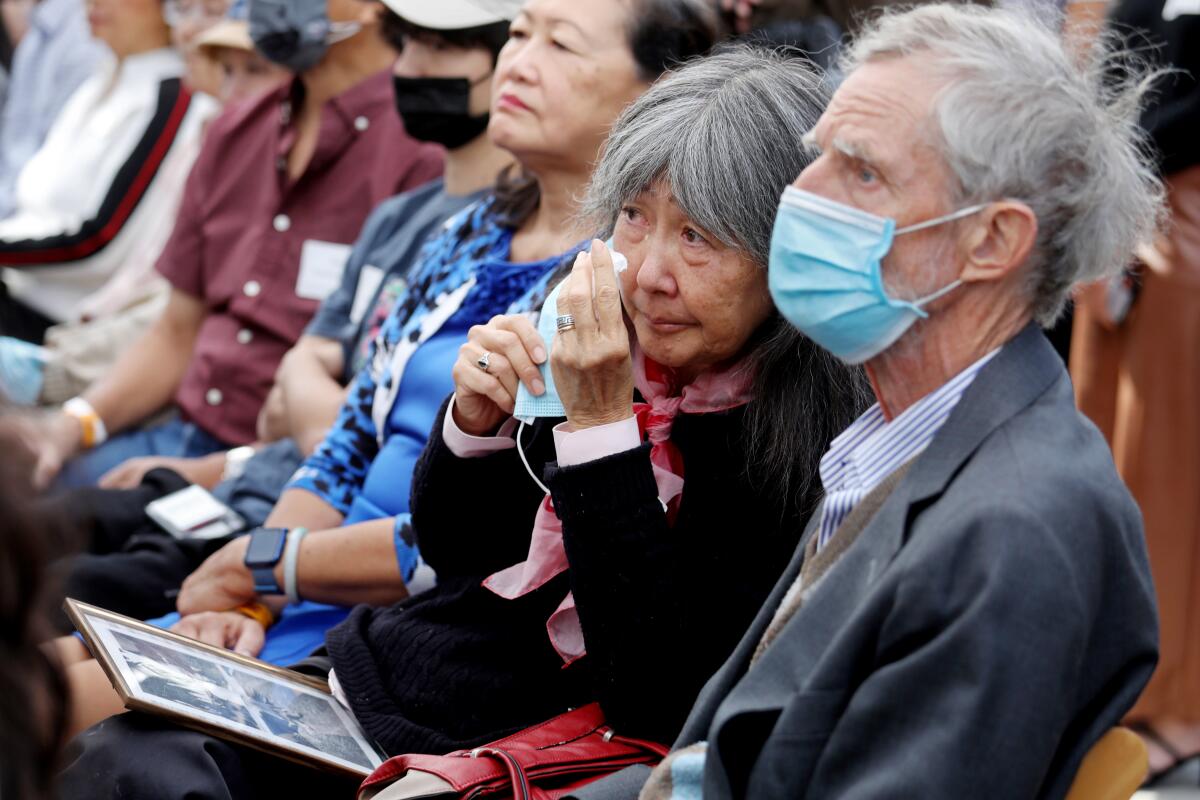
After he was released, he never finished his education. But like many others, he remained a lifelong Trojan without ever carrying a grudge against his former school.
His granddaughter Elanor Sakamoto said he recalled his USC major advisor visiting him at the Tule Lake camp at the time he was supposed to graduate.
“He was lucky enough to have a professor who told him, ‘I know you deserve’ ” this degree, she said.
Sakamoto said her grandfather kept Trojan bobbleheads around the house, wore USC sweatshirts, and always cheered on the football team at the Rose Bowl.
She said he later secured a job as an accountant at the L.A. Department of Water and Power and worked his way up to a management position. After he retired, he took law classes at a community college at age 70.
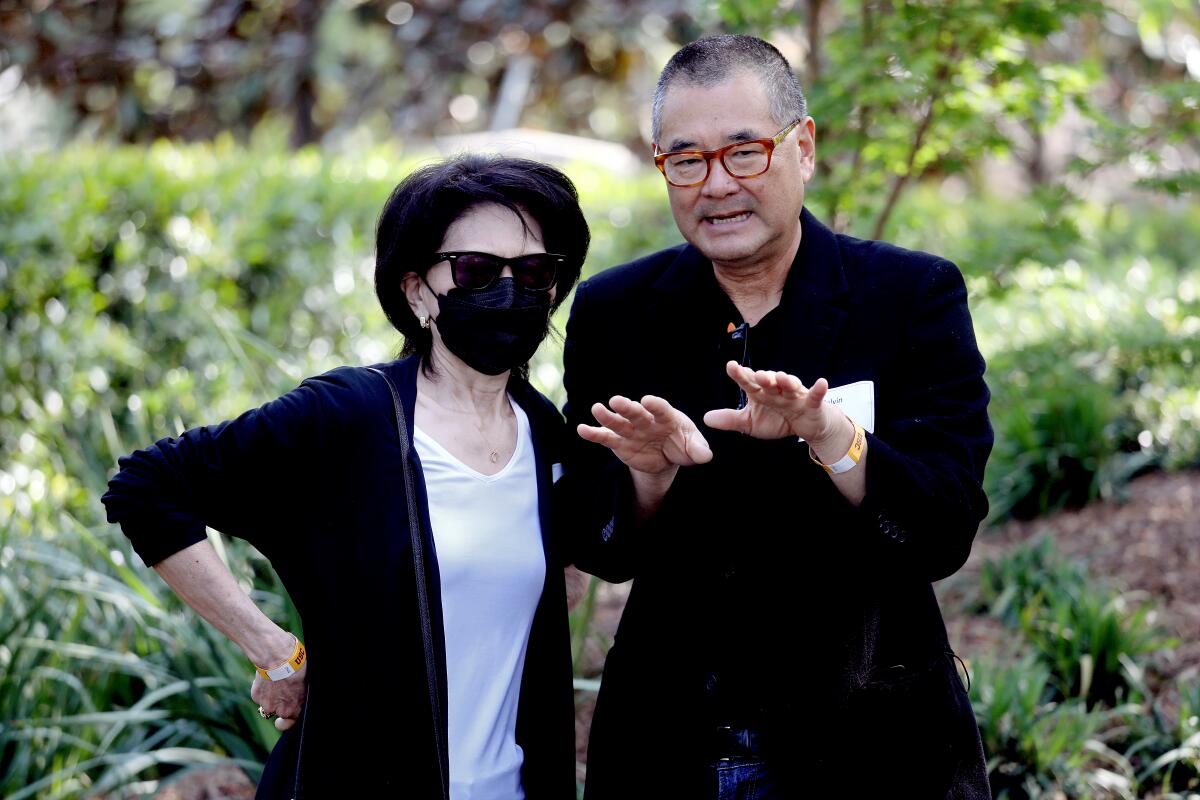
Sakamoto said she nearly broke down when she saw an email from the Asian Pacific Alumni Assn. confirming that her father would receive an honorary degree.
“I think he would’ve sighed, and taken a deep breath,” she said.
Some of the other Japanese American USC students chose the U.S. military route during World War II despite the actions of their own government against them.
Pharmacy student Henry Kondo joined the famous 442nd Infantry Regiment, the most highly decorated unit in U.S. military history — one composed almost entirely of Japanese American soldiers.
Born and raised in Pasadena, Kondo was only in his first year at USC’s pharmacy school when he joined the military. He was killed in action in October 1944 during the Battle of Bruyeres to liberate the French town from German control.
His great-niece, Kristen Hayashi, could only piece together his life from the letters and photographs he left behind.
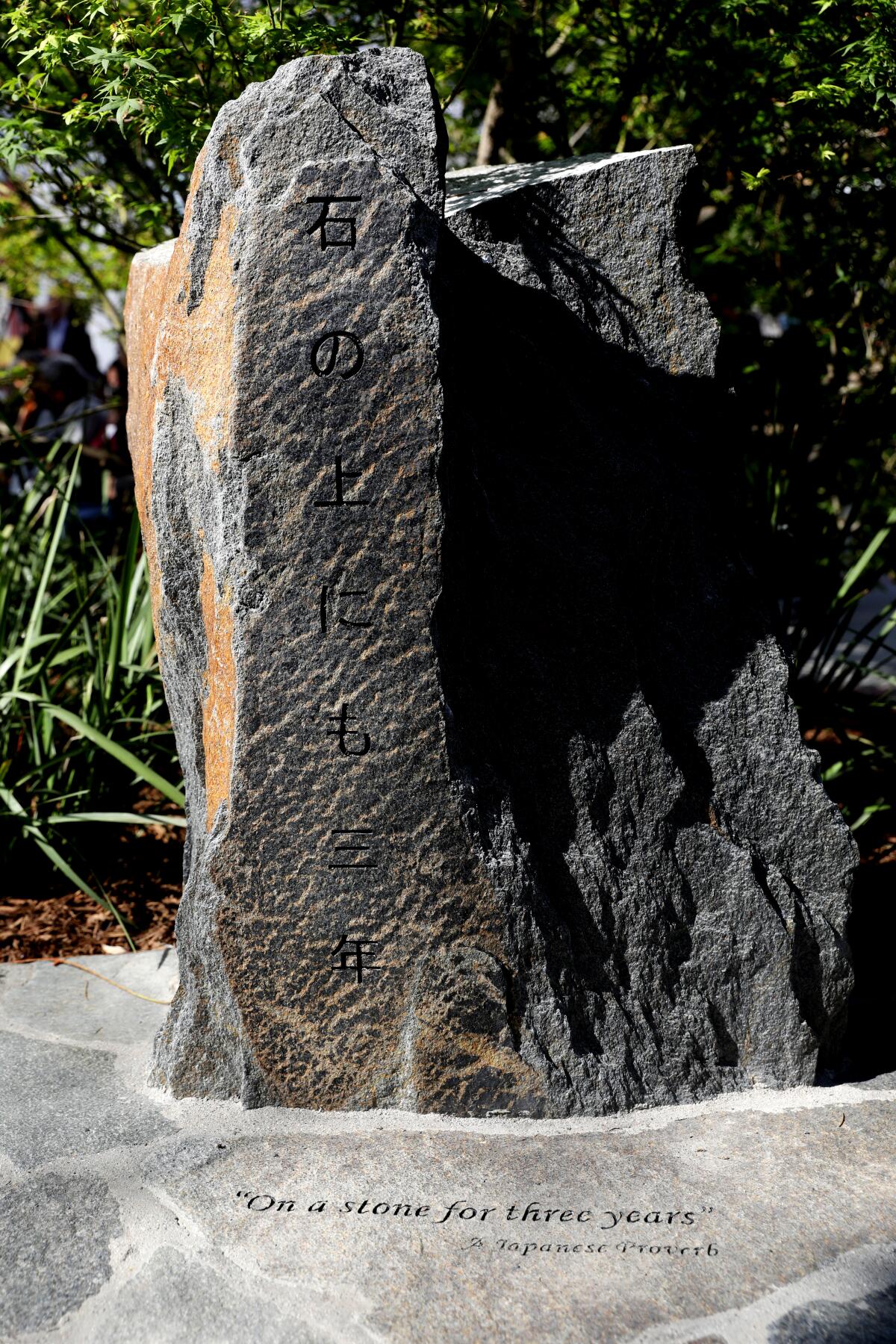
What she found in the letters was a kind 21-year-old eager to prove his loyalty to his country, reassuring his father that he was doing fine on the front lines. He was more candid about the realities of war in communications with his brother-in-law.
Hayashi, a curator at the Japanese American National Museum, watched from the audience as Kondo’s nieces, Debbie Fagen and Annette Kondo, went on stage to accept his honorary degree.
“It’s unfortunate that it’s so late and none of his siblings are still alive to see this honor,” Hayashi said. “But nonetheless, we’re really, really pleased. … I know my grandmother would have been really pleased.”
More to Read
Sign up for Essential California
The most important California stories and recommendations in your inbox every morning.
You may occasionally receive promotional content from the Los Angeles Times.


